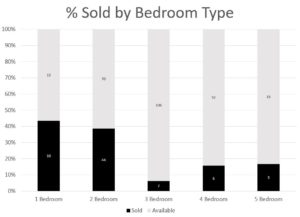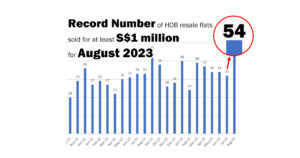Article contributed by:
Contact Person: Gary, +65 9107 5225, gary@smtplaw.com, www.smtplaw.com,
M/s Sim Mong Teck & Partners.
–
Introduction
This case was first reviewed in our September 2013 Newsletter on the High Court’s decision. The Court of Appeal overruled the High Court’s decision on 26 May 2014.

Background to the Dispute
The Respondents (Buyers) managed to secure an in-principle approval from a local bank on 12 July 2012. At that time, the maximum loan was still capped at 80% of the prevailing loan to value (LTV) ratio. On 5 October 2012, MAS came out with new guidelines to cap the LTV ratio at 60% if the sum of the tenure and the age of the borrower exceed 65 (“5 October Notice”).
On 10 October 2012, the Buyers made a verbal offer and on 12 October 2012, both the Buyers and the Appellant (Seller) reached an agreement on the sale and purchase of the property. The Buyers claimed that they were advised by the Bank to ask their property agent whether the Seller could backdate the Option to Purchase to 4 October 2012 so as to qualify for the higher loan amount. In this case, the Buyers needed a 24 year loan which when added up with their age exceeded 65 years. The Buyers also alleged that their banker told them “a lot of buyers” were backdating their Option to Purchase and this was a “common practice”.
On 13 October 2012, an Option to Purchase was signed by the Seller and backdated to 4 October 2012 and was exchanged for the 1% option fee based on the purchase price. Subsequently, the Seller was advised by her son that backdating the Option to Purchase was illegal and she should not proceed with the sale of the property.
On 24 October 2012, one day before the expiry ofthe Option to Purchase, the Seller’s lawyers wrote a letter to the Buyers’ lawyers stating that the Seller did not want to be a party to an “illegality or irregularity” in backdating the Option to Purchase and was withdrawing her offer. They went on to say in their letter that the Seller’s instructions would be to reject any exercise of the Option to Purchase.
On 24 October 2012, the Buyer’s lawyers responded stating that the Seller had no right to withdraw the offer as stated in the Option.
On 25 October 2012, the Buyers unsuccessfully attempted to exercise the Option to Purchase at the Seller’s solicitors’ office. Subsequently, the Buyers’ lawyers wrote in a letter dated 6 December 2012, to propose performing the contract on the basis of the actual date of the signing, i.e., 13 October 2012 and that the Buyers would get their financing based on the 5 October Notice. However, both the Buyers and the Seller could not resolve the matter.
The High Court’s Decision

The Buyers filed an action in the High Court on 11 January 2013 for a Declaration that the Option to Purchase was valid and binding on the Seller and specific performance of the Option to Purchase by the Seller or alternatively damages.
The Seller argued that because the Buyers backdated the contract, the Option to Purchase was an illegal contract and therefore unenforceable. As such, the Buyers should not be entitled to specific “unclean hands”.
The Buyers argued that the Option to Purchase was valid and binding on the Seller, since it was not illegal per se but was capable of being performed lawfully. The Buyers also argued that they had “washed their hands” and repented from any alleged illegality by voluntarily undertaking to perform the contract in full compliance with the 5 October Notice.
The High Court declared that the Option to Purchase was valid and binding on the Seller and ordered specific performance of the Option to Purchase by the Seller.
The Application To The Court of Appeal

The Seller appealed against the High Court’s decision. The Seller argued that the policy objective of the rules introduced by MAS was to protect the public through avoiding a destabilizing property bubble. The Seller added that the backdated Option to Purchase was illegal under common law as it was meant to deceive the Bank into giving the Buyers a bigger loan, i.e., a loan at LTV ratio of 80% in contravention of the 5 October Notice, which rendered the Option to Purchase void and unenforceable. As such, the Buyers were not entitled to specific performance.
The Buyers countered the Seller’s claim by arguing that any illegality was “now irrelevant” as the bank loan was never drawn down and in any case, the buyers were willing to cap the sum sought based on the 5 October Notice. The Buyers also argued that the Option to Purchase was for the legitimate purpose of granting them an option to purchase the property and that they could not have deceived the Bank when the idea of backdating the Option had originated from an officer from the Bank itself. Even if there was any illegality in financing, this was remote to render the Option to Purchase unenforceable.
The key question in this appeal was whether the Buyers were entitled to enforce the Option to Purchase despite the fact that it was backdated for the purposes of enabling the Buyers to obtain a larger credit facility that they were otherwise entitled to under the 5 October Notice, hence, whether the Option to Purchase was void and unenforceable at common law for being contrary to public policy.
The Court Of Appeal’s Findings
The Court of Appeal overruled the High Court’s decision and rejected the Buyers’ arguments. The move by the Buyers to abandon their original aim of backdating the form was irrelevant, since, they knew what they intended to do was unlawful and this made the contract illegal when it was formed.
The Court also held that it was similarly irrelevant whether or not the Bank involved was eventually deceived or suffered any damage such that they had a valid case against the Buyers. Once the illegal object of the contract was established, the illegal object tainted the contract itself and it was no answer to say that the illegal object was not carried out by the Buyers.
The Court’s refusal to enforce the Option to Purchase in the present case was an “appropriate and proportionate” response to the Buyer’s clear intention to violate the 5 October Notice at the time they entered into the Option to Purchase.
In the view of the Court, “public policy dictates that the Court in this case refuse its assistance to a party who has knowingly backdated a contract with the clear purpose of using that false date to contravene the law”. The Court made it clear that the illegal act by the Buyers was “not merely trivial or administrative in nature” and was directly linked to the policy objective, which was to limit the quantum of residential property loans in order to keep the property market stable. This policy objective would indeed be undermined if the Court were to permit the Buyers to enforce the backdated Option to Purchase.
Conclusion
Readers should take note of the perils of backdating Option to Purchase to circumvent public policy as highlighted in this case.
– Written by Pan Wai Liong, Advocate & Solicitor
Note: The above article is intended to provide general information. Although we endeavour to ensure that the information contained herein is accurate, we do not warrant its accuracy or completeness or accept any liability for any loss or damage arising from any reliance thereon. The information herein should not be treated as a substitute for separate legal advice concerning particular situations.
If you would like to obtain advice, please do not hesitate to get in touch with Gary, +65 9107 5225, gary@smtplaw.com, M/s Sim Mong Teck & Partners.
This newsletter is meant for a restricted circulation confined exclusively to SMTP’s working partners and is not to be disseminated. No reference to or quotation from the newsletter is permitted. This newsletter is published on PropertyNet.SG with approval from SMTP.
Enjoy what you have been reading? Join our mailing to get valuable insights delivered to your inbox today.





